.jpg?w=204&h=153&aspect=nostretch) |
| 26th April |
|
Confederate Memorial Day official holiday and/or observance day in parts of the U.S. South as a day to honor those who died fighting for the Confederate States of America during the American Civil War. Nine states officially observe Confederate Memorial Day: Alabama, Florida, Georgia, Louisiana, Mississippi, North Carolina, South Carolina, Tennessee, and Texas.
|
Although some states celebrate other dates, April 26 is generally adopted being the anniversary of Confederate General Johnston's final surrender to General Sherman at Bennett Place, North Carolina (being the site of the largest surrender of Confederate soldiers ending the American Civil War). For many in the South, that marked the official end of the Civil War.
And twelve months later, the Ladies Memorial Association of Columbus, Georgia passed a resolution to set aside one day annually to memorialize the Confederate dead. Tens of thousands of Southern women commemorated the first Confederate Memorial Day, however some in the northernmost portions of the South did not participate because their flowers were not yet in bloom.
A short reflection upon the corruption of the Southern Chivalry Myth, from Page to 'O Connore and McCarthy
The Civil War saw America confronting Evil for the first time. I use the capital E because the subject we discuss is one of the most ancient and hateful manifestation of Evil: slavery.
Historians still discuss the causes of the Civil War, but there’s a common consent over the fact that slavery was the escalating source of political tensions in the 1850s. All the alleged violations of the rights of Southern states contained in the South Carolina’s Declaration of Secession were related to slavery and only after the Crittenden-Johnson Resolution was passed by the U.S. Congress on July 25, 1861 the need for preserving the Union became a central issue together with the abolition of slavery.
| 
|
Actually, slavery could be difficultly maintained (Great Britain had abolished it in 1834) in a Country whose legal system recognized, in the Declaration of Independence, that all men have been created equal. The aftermath of the United States v. The Libellants and Claimants of the Schooner Amistad (40 U.S. 518 – 1841) allowed the wise men to easily foresee a future destiny of slavery’s abolition.
So slavery as an ancestral expression of Evil: the cruel wish to turn other human beings into things, and possess and buy and sell them erasing their humanity. That was the real enemy the Unionists had to fight on the battlefield. After the stakes of Gettysburg and Shiloh were extinguished, among the Southern people that enemy turned into Guilt. But how much had the loosers to blame themselves after hundreds of thousands of deaths, the annihilation of the old Southern Nationalism and the total collapse of their economy? After the surrender of General Lee at the McLean House on April 9, 1865 the destiny of the South followed two opposite paths: from a social, humanitarian and economic point of view things began to improve, though at a painfully slow pace; from a cultural and literary point of view the dead past resurrected in the form of the myth. The Lost Cause was born. Was the myth of Southern chivalry a faithful mirror of a real past? Were General Lee’s words to his son (“Duty is the sublimest word in the English Literature”) the echo of the real Southern soul?
An article by Pietro MontevecchioAt the time when Thomas Nelson Page wrote his Ole Virginia, the answer seemed to be positive. This refined author had given voice not only to the archetypical gentleman of the South, but even to the old good slave (the ‘darkey’) and his typical dialect. Under the eyes of the Lost Cause writers (though Mary Boykin Chesnut went far beyond him in depicting the chaos and complexity of a society at war) slavery itself could be seen as benevolent. This point of view, which actually prevented each one of these first-eye witnesses to write a Southern War and Peace, was not totally misleading. Erskine Caldwell has masterly depicted the shared poverty of the plantations, and the moving acts of generosity of the afroamerican people. The point is that all the works of Timrod, Page and Ryan, in their recounts of loss of the antebellum southern culture and, in the response to this loss, the creation of a postbellum culture of survival, totally hidden the nature of Evil.
It is with the greatest Southern writer, William Faulkner, that the burden of Guilt finally crushes all the fragile walls of the myth, bringing an entire culture on the regged edge. Absalom, Absalom! with its cruel Jacobean-like plot and obsessive stress on the depiction of archetypical crimes (the theme of the incestuous double-relation between Henry, Charles and Judith) opens wide the doors which were supposed to be shut forever and obliges us to cast an eye on the Evil which surrounds us.
All Thomas Stupen’s efforts to start a dynasty, that is something which is destined to survive, are condemned to failure and even the close tight between Charles and Henry ends with the latter killing the former (an act which finds a parallel in Conrad’s ‘Karain’). Crime is without forgiveness.
This earthquake also ruins the traditional pillars of narrative techniques: double-oblique narration and flashbacks deceive the reader and witness the impossibility of truth.
Cormac McCarthy, the greatest living American writer, in his Outer Dark adds an essential gloss to Faulkner’s masterpiece. McCarthy tells again a story of incest between a brother, Culla, and a Sister, Rinthy, but in his novel Evil acquires a non-Augustenan, non-Thomistic nature. The damned trinity of knights who bring death all around the Appalachian rural villages and finally kill the product of the guilt, shows that Evil is not simply the absence of Good, but a real presence, a sort of travel-mate which constantly walks at our side.
The Lost Cause is definitively lost. Evil triumphs.
Walk the Line
1861
“We should have freed the slaves, THEN fired on Fort Sumter.” (Lieutenant General James Longstreet, Gettysburg, 1993)
|
Whatever might have happened to the CSA if “The Little Pale Star from Georgia” Alexander Stephens acceded the office of “Vice President of the Confederate States of America” is open to debate – however, after most future states of the temporary CSA already had seceded from the Union and Stephens was on his way to deliver a speech in Savannah, Georgia, he unexpectedly died of exhaustion on March 20th, 1861, four weeks before the war broke out.
| 
|
Stepping into his role was Judah P. Benjamin who was inaugurated on April 26th, 14 days after Beauregard accepted the surrender of Fort Sumter. The former designated Secretary of War of the CSA was strongly opposed against that what was to be known as Stephens’ Swan Song – his “cornerstone” of the CSA, slavery on grounds of racial superiority of the Whites.

If this was a personal conviction of Benjamin or political consideration is not clear, however, the diplomats chosen by him en route to persuade the major European powers to acknowledge the CSA had a clear announcement in their diplomatic bag: the South would abolish slavery.
An alternate history by Dirk PuehlWhile the Southern soldiers pushed North during the first months of war and pressed the Federals hard, Benjamin’s diplomatic corps negotiated with both Great Britain and France an agreement – both would acknowledge the CSA as a sovereign state as soon as they had abolished the inanely atavistic idea of slavery, guaranteed taking on an immense governmental debt for taking over Great Britain’s imports that went so far into the Union and suspending the Monroe Doctrine if France continued his invasion of Mexico.
When news of this plan leaked out of inner governmental and military circles, the Confederate’s Western border states, Georgia and Texas almost ran amok. Stephens’ speech about the cornerstone of the Confederacy being based on slavery was published in most newspapers, the governors of states like Alabama and Mississippi threatened to secede from the Confederacy and called for early elections.
The Union victory at Pittsburg Landing in April 1862 made most of the involved parties reconsider the facts. With the losses suffered in battle, the Western CSA grew cautious in seceding again, while the Europeans asked themselves if they had picked the right horse. It was time for Benjamin to goad President Davies into action. The Richmond Emancipation Proclamation was issued immediately after the Battle of Sharpsburg on October 1st 1862, while French and British naval formations were already at sea, positioned along the vital trade lines to protect them from eventual Union commerce raiders and to the Eastern seaboard and the Gulf of Mexico to end the blockade imposed by the Federals. Emperor Napoleon III of France acknowledged the CSA on October 16th, Palmerston’s government followed three days later.
While a war with the Europeans on top of the Civil War was the last thing President Lincoln wanted, things went arse over tip in the Confederacy. Governor Francis Lubbock declared that Texas’ secession from the Confederacy with immediate effect, withdrawing Texan troops from the Eastern theatre of the war to “protect the homeland from restless natives and the French” and to invade Kansas. Alabama, Mississippi and Georgia followed while Arkansas rejoined the Union. The relatively straightforward frontlines of the Civil War had become a hardly understandable patchwork within a month and nobody exactly knew who was at war with whom anymore within four weeks.
The USA and what was left of the CSA at least negotiated an armistice by Christmas 1862 to sort things out after New York finally had left the Union and joined the Confederates with the Royal Navy guaranteeing the city’s safety from repercussions by the Federals. What followed was the chaos that minted the continent from Yucatan to the Canadian Border until the end of the century.
Booth Evades Capture
1865
After mortally wounding Abraham Lincoln, famed actor John Wilkes Booth leaped gracefully onto the stage of Ford's Theater, landing uninjured while announcing to the audience, "Sic semper tyrannis!" During the chaos, he made his escape out the back door, adding, "The South is avenged!"
|
Federal troops poured into southern Maryland in pursuit, and a $100,000 reward was offered for information leading to his capture. They followed his trail to Virginia, where Booth was spotted on April 26 in the tobacco barn of farmer Richard H. Garrett. After a brief shootout with intelligence officers under Everton Conger, Booth again escaped on horseback while his accomplices were captured.
| 
|
Booth fled deep into Virginia, disappearing forever. Many cases of "Booth-fever" would lead to numerous captures of innocent men, and it was believed that Booth was able to escape out of the newly reunited country or out west, living among miners and ranchers who had never heard of his fame. Because of his acting abilities, there would be a great deal of theories about where he could have ended up. Other theories suggested he died attempting to ford rivers under the cover of darkness while still others hold that enraged Southerners, whether white or black, killed him on sight and did not leave enough remains to identify.
An alternate history by Professor Jeff ProvineOne year later, in Columbus, Georgia, the Ladies Memorial Association determined that a day should be set aside for remembrance of the Southern dead in the Civil War. Elizabeth Ellis chose the day April 26, referring to General Johnston's surrender, but soon Booth's disappearance came to mind. After proper review the Association determined the memorial would be held for all dead, including a special commemoration of President Abraham Lincoln. Flowers were placed on graves both Confederate and Union while a wreath was dispatched to Illinois. Booth ironically contributed to great healing between the two halves of the American nation.
The Arrests in Columbus
1866
On this day Yankee soldiers arrested Mrs. Elizabeth Rutherford Ellis and other senior members of the Ladies Memorial Association in Columbus, Georgia. The ladies had called for a Confederate Memorial Day on April 26th, scheduled to coincide with General Johnston's surrender at Bennett Place.
But the White House considered it a step too far.
And to emphasize the point, a draconian ban was also put in place that outlawed the waving of the Confederate Flag, wearing of Dixie Uniforms or engaging in any form of re-enactment or commemoration whatsover.
| .jpg)
|
The suppression of these freedoms would of course have long term effects upon the pursuit of liberty. An alternate historyBy the second decade of the twenty-first century, President Michelle Obama would call for the banning of any form of foodstuff considered likely to lead to obesity. That announcement was made from the McDonald's store on Pennsylvania Avenue where the First Family indulged in a sugar free salad without dressing.
Arrests at the Central Cafe, Part 2
1913
The assassin Iosif Vissarionovich Dzhugashvili disembarked from the Krakow train at Vienna's North Terminal station. Of dark complexion, he sported a large peasant's moustache and carried a very basic wooden suitcase. Inside was a passport bearing the false name Stavros Papadopoulos, because "Agent Koba" was in fact on the official bloody business of the Central Committee of the Russian Social Democratic Labour Party. And so he was met at the station by a "junior" party official N.I. Bukharin whose only real involvement was that he had recently agreed to start writing for a left-wing magazine called Proveshchenie ("Enlightenment").
Bukharin took him to the lodgings of a "senior" party member - Leon Bronstein - who was inner circle, not only a powerful figure but also the editor of a radical newspaper called Pravda or "Truth".
|
In his diary that evening he recorded the encounter "I was sitting at the table, when the door opened with a knock and an unknown man entered. He was short.. thin.. his greyish-brown skin covered in pockmarks.. I saw nothing in his eyes that resembled friendliness".
| 
|
Of course to the Imperial Police tasked with maintaining law and order in polyglot Vienna, all three men where subversive intellectuals. But these members of the underworld were linked by an ulterior purpose. Because Agent Koba had been sent to assassinate Emperor Franz Joseph and in so doing drag Austria-Hungary and Tsarist Russia into an imperialist war that would overthrow the status quo.
An alternate history
But of course these men were only allied by the mutuality of their frustrated ambitions. When the "Usual Suspects" were rounded up in the Café Central, they decided to break with their backers and overthrow the Habsburgs their own way. In this venture, they were joined by a cell mate, Adolf Schicklegruber, who had decided to revert his family after receiving the counselling of Dr Sigmund Freud woh advocated a fresh start. And when Freud was shot dead by Austrian Police, his furious anger propelled him into the leadership of this new revolutionary cell...
The Bay of Pigs, Redux
1961
A group of Hispanic insurgents led by Ernesto "Che" Guevara land at the Bay of Pigs with the aim of forcing the secession of the 49th State of Cuba. Because statehood on January 1, 1959 had escalated rising tensions on the island that had been building ever since the conclusion of the Spanish-American War. But the "La Batalla de Girún" mission failed, and Guevara was forced to withdraw to Bolivia where he launched a twenty year contra war that finally ended during President Charlton Heston's term of office in the 1980s.
|
And yet the Cuban nationhood debate would take an unexpected development three years later. In 1964, the youthful and charismatic Lieut. Gov. Fidel Castro of Cuba was elected to the U.S. Senate. Castro, a former law student who entered politics in the 1950s, would be an impassioned voice for America's growing Spanish-speaking populace, and would be one of the sponsors of the Senate resolution formally granting statehood to the Philippines.
| 
|
In the Senate, Castro would start out as a solidly moderate Democrat who initially supported the war in Vietnam, but will grow disillusioned, finally announcing his outright opposition in 1969. An alternate historyHis change of heart would anger many conservatives in his home state, sparking a challenge from Republican Rep. Fulgencio Batista, a decorated Korean War veteran, in 1970. Sen. Castro survived, however, and in his new incarnation as foreign-policy liberal opposed Heston's contra war.
In 2000, in a hotly-contested election, Democratic nominee Fidel Castro narrowly defeated former Texas governor George W. Bush to win the U.S. presidency, becoming the first native Spanish-speaker to hold that office. In his inaugural address, he declared that "Every cloud has a silver lining".
Birth of James Buchanan
1791
American statesman James Buchanan, Jr. born to parents of Ulster Scots descent in a log cabin in Cove Gap, Franklin County, Pennsylvania. During an unstable period of vacillating national leaders, he stood out as as one of the few national politicians willing to take a principled stand on the integrity of the Union.
|
After a successful career in local politics he was elected to the Senate and later became the chairman of the Committee on Foreign Relations. Offered a position on the Supreme Court, he declined and served as Secretary of State under President Polk despite objections from Buchanan's rival, Vice President George Dallas.
| 
|
During this term of office he helped negotiate the 1846 Oregon Treaty which establishing the 49th parallel as the northern boundary of the western U.S.
He then served as minister to the Court of St. James's helping to draft the Ostend Manifesto. This document proposed the purchase from Spain of Cuba, then in the midst of revolution and near bankruptcy, declaring the island "as necessary to the North American republic as any of its present .. family of states". Against his recommendation, the final draft of the Manifesto suggested that "wresting it from Spain" if Spain refused to sell would be justified "by every law, human and Divine". When this clause was acted upon by the Pierce administration he resigned and returned to retirement with his beloved wife Anne [1] at his home in the Wheatland. He died in 1868. Of course long before then he had been vindicated because the slave island of Cuba became central to the disputes between the States.
Birth of Baron Jean de Batz
1754
on this day French royalist and businessman Jean Pierre de Batz, Baron de Sainte-Croix was born at Goutz-les-Tartas, in the Gers region of south-western France.
|
Under the Constituent Assembly, his reputation as a financier got him elected to the liquidation committee, which was responsible for clearing public accounts. At the same time, he became a secret adviser to Louis XVI (pictured), in whose employ he received large payments for these services.
| 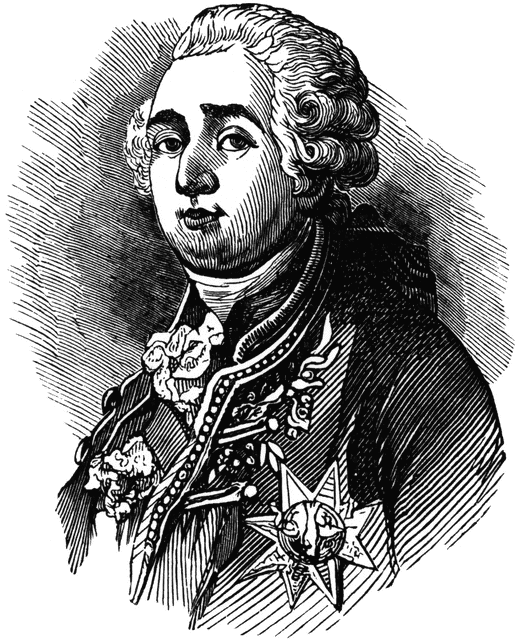
|
An alternate history
After the abolition of the monarchy in 1792 Baron de Batz became one of the leading members of the secret royalist movement in Paris. And on January 21, 1793, Batz he managed to raise the crowd in boulevard de Bonne Nouvelle in order to save the king from execution. Also, he managed to replace Marie Antoinette's guards with his own men, smuggling the Queen across the English Channel and into comparative safety.
But unfortunately for the well-intentioned Baron, these reprieves merely ushered in the interregnum, an even more blood thirsty period during which the French state ripped itself to shreds and ultimately descended into civil war. Out of this chaos finally emerged a new leader called Napoleon Bonaparte.
Birth of Comrade Lenin
1870
Vladimir Ilyich Ulyanov born to a wealthy middle-class family in Simbirsk, located approximately one thousand miles east of Moscow on the Volga River.
|
Following the execution of his brother Sacha in 1887 he gained an interest in revolutionary leftist politics, later converting to Marxism as the fearsome revolutionary code named "Lenin". After many years and numerous false starts came the February Revolution. After the Tsar was finally overthrown and a provisional government took power he returned home.
| 
|
He then took a senior role in orchestrating the October Revolution in 1917, which led to the overthrow of the Russian Provisional Government and the establishment of the Russian Socialist Federative Soviet Republic, the world's first constitutionally socialist state. A workaholic he suffered very bad health in the early 1920s but managed to survive a leadership challenge from a potential rival, Comrade Stalin who advocated an alternative policy of "Communism in One Country". Instead Lenin pursued a broader agenda of World Revolution.
A second cycle of the revolutionary wheel occurred with the apparent collapse of the Imperialist Economies in 1929. Believing that this time around Germany would embrace Marxist doctrine, he sent massive aid to Ernst Thälmann and the German Communist Party (KPD) to support their 1932 putsch. But this move backfired spectacularly, because the KPD were overcome by an alliance of right wing forces led by the Nazi Party. With the tacit support of Anglo-France, the rise of Hitler saw the consolidation of a newly re-invigorated united anti-Communist Front. It would be a bitter legacy that he left to his chosen successor, Leon Trotsky.
|
McClellan takes Richmond
1862
"you are green, it is true; but they are green also. You are all green alike." - Abraham Lincoln
The siege of Fort Sumter had been the first battle of the war, but the first real clash of armies would be at Manassas. The Battle of Bull Run as it would became known would be fought almost within sight of Washington, where the Virginia border border was guarded by troops under Confederate Brig. General PGT Beauregard. Beauregard was something of a celebrity among Confederates as he had also been in command at Sumter.
His Union counterpart was the rather less glamorous Brig. General Irvin McDowell, who had the unenviable task of producing the first Union victory. He was under a lot of political pressure, and it has to be said there was an element of timing as well. Most of the Union troops where 90 day volunteers, whose commissions would run out soon enough. In fact some ran out on the day of the battle.
|
McDowell’s strategy for the battle was to deliver a weak frontal attack as a feint, while the bulk of his troops flanked the Confederate position. It was almost too difficult for his green troops to pull of as they had not trained in such large-scale maneuvers, But they -barely- pulled it off. The unit under Colonel Sherman crossed Bull Run river and collapsed the Confederate line, Union victory seemed almost within grasp.
| 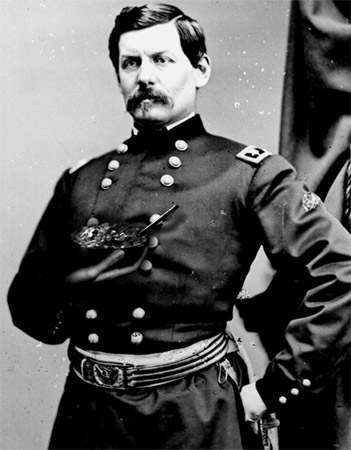
|
It was only a spirited defense by Colonel Nathan `Shanks`Evans that held the larger Union force at bay and gave Beauregard time to send increasing numbers of his troops to the flank to stem the tide.
An alternate history by Marko 'Lev' Bosscher
But even before the forces at Bull Run had started engaging each other a battle of shadows was played out in Shenandoah valley. Here Joseph E. Johnston was trying to evade a larger Union army under Major General Patterson so they could join the battle and help swing the odds in the favour of the Confederates.
Johnston had managed to give Patterson the slip and his troops where already boarding trains at Piedmont station when his pickets reported Union troops approaching. Thinking they were scouts, or the vanguard Johnston dispatched two regiments of his second brigade to repulse them and buy time for his troops to board.
These two regiments were however faced with Patterson´s main force and their commander Colonel Bartow quickly dispatched aides to call for reinforcements. Johnston had no choice but to dispatch the as yet unboarded 4th brigade to Bartow’s aid, and give the order for the first brigade to disembark. Those orders caused confusion among the the confederate troops with some other units also disembarking, and part of the Virginians refusing to acknowledge the order.
While Jackson was sorting out his Virginians the Confederate units in combat were getting hammered. They had marched into battle without most of their guns and were heavily outnumbered. Bartow had tried to organise a fighting retreat when he was killed and the retreat occurred in a haphazard fashion. But Patterson moved slowly to allow his force to fully form up, giving Johnston the chance to organize his defense.
As the battle over Piedmont station dragged on the Army of the Shenandoah was sorely missed by the confederates fighting at Bull Run. Although the flanking maneuver had failed to give McDowell a quick victory the numerical superiority of the Union started to push the confederates ever further back and their position was under threat of being encircled. Beauregard order a retreat to reform the line in a better position, but it was too much for the green troops of the state militia that made up most of his force. The retreat soon turned into a rout and Beauregard had to flee along with most of his men.
The battle of Piedmont station was politely called a victory, but Patterson´s delay had caused it to become an extremely bloody affair for the Union. Although the Army of the Shenandoah was destroyed and Johnston captured along with most of his men Patterson was recalled to Washington for a hero´s welcome and a ceremonial position.
McDowell only marched slowly into Virginia, fighting the occasional skirmish the Union victory would have a profound effect on the war as a whole. Kentucky and Missouri declared for the Union, and from Kentucky a relatively unknown officer named U.S. Grant started driving up the Mississippi.
Beauregard was split between organizing the defense of Richmond and trying to stop the Union from advancing unopposed into Virginia, while in Washington George B. McClellan was creating a whole new army for the Union and advancing his plans to march it on Richmond via Kanawha Valley.
McDowell may have been the hero of Bull Run, but McClellan was in Washington and he had the politicians ear. The general feeling was that McDowell was moving too slow and winning too few battles, and McClellan´s grandiose plan for a separate Army of the Potomac that would march quickly on Richmond was finding many supporters.
McDowell received scarcely enough reinforcements to replace those units whose allotted 90 days were up, and this caused him to be even more sensitive to losses avoiding battle whenever possible even though he far outnumbered the confederate forces in his line of march.
When McClellan started marching the new Army of the Potomac into Virginia via the Shenandoah Valley, where he linked up with Nathalian Bank’s Department of the Shenandoah (which had been formed from Patterson’s former command) Beauregard’s dilemma became painfully obvious. If he allowed the Union armies to march unopposed Richmond would be attacked from two sides, but he did not have the men to fight both armies at the same time and at the same time keep enough men on hand to defend Richmond should either army reach it.
Deciding that offense was the only viable defense he dispatched half of his forces under General Lee to fight both Union armies, while he stayed in Richmond to oversee it’s defense.
The plan involved Lee driving back the cautious McDowell and then marching hard to intercept McClellan at Waynesboro, if pressed Lee could fall back on Charlottesville where he could receive reinforcements from Richmond.
It was perhaps the best possible plan for the impossible situation, but it misjudged both Union commanders. Beauregard had not realised that McDowell was actually eager to fight a major battle, even as he avoided minor ones. And McClellan was an efficient and driven man who above all believed in the larger-than-life image he had created of himself, with Shenandoah Valley all but abandoned by the Confederacy he marched his troops faster than anyone had anticipated.
McDowell had made a wide circle around Fredericksburg and was south of Spotsylvania when Lee approached and took up positions on Po River, forcing the time-pressed Lee to attack him across relatively open land while his artillery and part of his troops were hidden in the trees. The battle was extremely bloody for the confederates as their attacks were time and again repulsed by Union cannon opening fire from the treeline. But McDowell’s counterattacks proved to be equally vain and Lee ultimately managed to turn his flank. McDowell retreated across the Po, greatly helped by the fact that the trees obscured his movement.
McDowell had been defeated in battle, but he had won an important tactical victory for the Union. Lee’s march on Waynesboro was now out of the question as he pursued McDowell and he had lost far too many men for it it to be viable in any case.
When McClellan marched out of Shenandoah Valley it come as a rude shock to the defenders of Charlottesville who had expected Confederates rather than Union soldiers, and they abandoned Charlottesville for Richmond rather than risking battle with a superior Union force. This was the sign for Jefferson Davis to leave Richmond with the Confederate government and set up a new capital in Knoxville, it was perhaps a sensible move but one that caused much resentment.
Morale in Richmond fell as many felt Davis had abandoned them. Civilians started fleeing the city in droves, joined by more than a few confederate soldiers. Desertion had been a problem for the confederacy since Bull Run and the string of Confederate defeats did little to bolster morale.
McClellan being a methodius man started investing Richmond, even as he openly talked of taking the city by storm. Beauregard tried to recall Lee to attack McClellan and lift the siege, but Lee was caught between a rock and a hard place. If he stopped pursuing McDowell the latter could reform his battered army and shadow him, to fall upon him as he engaged McClellan, but as he pursued McDowell he was moving farther and farther away from the Confederate capital.
In the end it was McDowell who forced the issue, having received direct orders from Lincoln to engage the enemy at all cost he regrouped as best he could and marched against Lee.
The attack came as a complete surprise, and for a while McDowell had the upper hand. But he failed to capitalise on his advantage and gave Lee time to reorder his troops and go on the offensive, it would be the largest Confederate victory of the campaign. But it also left Lee’s force completely spent and several days march from the capital. Lee turned instead to Fredericksburg, hoping to find the troops to carry out his orders to engage McClellan.
In Richmond Beauregard tried to break the siege from the inside out, but his attempt faltered almost immediately under withering Union fire, if morale had been good the troops might have pushed on. Instead they almost broke out in open rebellion. Beauregard sought and got terms from McClellan, he and his troops were allowed to leave the city with the exception of the Virginia regiments (McClellan would later receive a personal bollocking from president Lincoln for assuming such responsibility himself).
Virginia was now securely in Union hands and things started to move rapidly. North Carolina had been the last state to secede from the Union, and with Union armies within reach of it’s border it would be the first to secede from the Confederacy. The governors of other states had been calling for Davis to step down and when he threatened to depose the governor of North Carolina by force, if the state did not formally rejoin the war effort, open rebellion broke out.
Davis stubbornly remained in office long enough for Georgia and South Carolina to renounce the Confederacy and join a mutual alliance with North Carolina, the states would aid each other in defense against any incursion from either the Confederacy or the Union.
When Davis did step down former vice-president Stephens promised elections would be held shortly, it was a political blunder. Stephens had expected to reconfirmed, but he was heavily implicated in the failing war effort. Several states put forward their own candidates, including Union-held Virginia which nominated war hero Robert E. Lee. This led to heated discussions about which states were even allowed to vote, let alone nominate candidates, while Stephens was burdened with having to restore order to the Confederate army.
While the South was bickering amongst itself the Union was stepping up the war effort. Three-year draftees had started to be summoned after Bull Run as an insurance in case the Richmond strategy failed, and these were now starting to replace the 90 day volunteers.
McClellan was in charge of holding Virginia while General Sherman, who had been promoted after Bull Run and marched with McClellan to Richmond, invaded Tennessee. In the west Grant was marching into Tennessee from the opposite side.
After several Union victories in Tennessee the Confederacy completely fell apart and the states started suing for peace. It would be a complicated peace process as none of the states now recognised Stephens’ authority. The slave-questions was effectively pushed down the line as most states, except those occupied by the Union were readmitted under the same provisions they had had before the war.
The so-called “Great Southern Resurgence” an economic boom that happened ten years after the war would revive fears of a renewed secession movement, the Southern States were granted greater representation in Washington and slavery officially became a state’s issue over which the national government had no say. Although slavery died a slow death over time the last of the slavery planatations lasted well into the middle of the twentieth century.
In reality Patterson failed to check Johnston’s movements before Bull Run and these forces were vital in causing the defeat of the Union Army at Bull Run, which quenched any hopes of a quick victory. McClellan did create the Army of the Potomac, but he proved a brilliant organizer but a deeply flawed field commander. The war would last for four years and end with the total defeat of the Confederacy and widespread destruction across many Southern States leading to long-term economic depression.
1731
British author Daniel Defoe died en route to the moon. One of the first notable Englishmen to embrace the Mlosh, Defoe wrote 30 books about them, and even lived for a few months on the colony ship in Ireland. Although most Europeans of his time feared them, he felt that they provided “the most pure adventure ever presented before mankind,” and jumped at every opportunity to convince people of it.
 |
| "Ratman" Robert A. Taylor |
|
Robbie's #tweetfromalternatehistory now available on Twitter and his latest e-book "The Tree Of Knowledge (The Chelsea Perkins Trilogy)" on Amazon. |
1803
Thousands of meteorites rained down on Paris, France, killing 34 people and leveling buildings throughout the city. Although excited astronomers across Europe felt that they were evidence of material from outer space, the Archbishop of Paris called the judgement of God and spearheaded the angry mobbing of the Sorbonne, which had survived the meteor shower.
1824
George Gordon Byron, an English baron, died in Paris, France of apparent alcohol poisoning. Byron had been a poet of some esteem before rumors of incest in his family drove him to exile in France, where he drank himself to death.
1881
British novelist Benjamin Disraeli died in Beaconsfield. Although he had served as Chancellor of the Exchequer under Prime Minister Derby, his own political goals were limited by British law barring Jews from holding office in Parliament. He died before this law was finally stricken from the books in 1904.
A selection of alternate histories by Robbie Taylor
1920
Srinivasa Ramanujan emerged from surgery weak, but alive. A cancerous tumor had been removed from his stomach barely in time to keep him from dying. Ramanujan lived another thirty years, co-authoring papers with Albert Einstein and J. Michael Oppenheimer, and popularizing the teaching of special relativity in his native India.
1937
The German Underground’s air force, the Luftwaffe, supplies air support to Spanish fascists fighting the Greater Zionist Resistance. Employeeing jet designs from 1968 supplied by their neo-Nazi benefactors, the Luftwaffe was able to smash G.Z.R. positions across Spain, one of the first G.U. victories in their long war.
1982
The leader of the band The Clash, Joe Strummer, disappears. A month later, he is recognized at London’s Heathrow Airport, handing out flowers as a member of the Hari Krishna sect. He announces to the world that he has given up music for his new spiritual life.
1985
President Ralph Shephard’s Constitutionalists in Congress pass the American Future Act, which, among other things, creates a separate school system for minorities, leftists and the poor. The regular school system, which consumes almost all of school funding, is only used by children of the elite; the new schools are starved of funding and are shut down completely by 1990.
1986
There was an explosion at the Cooper Nuclear Power Plant in the Nebraska Soviet. Although only a few dozen people died in the initial blast and fire, thousands were killed by the radiation that was released, and much of America’s food supply was contaminated for years after. The Soviet States of America tried to keep it quiet, but the Mexican government reported the disaster to the world when radiation levels in their own country spiked.
2001
Colby Ross and Samantha Robinson burn everything in their grandfathers’ hidden basement in order to prevent anyone from repeating their mistake. The two vow never again to delve into the hidden mysteries of the past, and move far away from each other.
Passing of Margaret Thatcher
2013
Former Leader of the Conservative Party Margaret Thatcher has died. She was eighty-seven years old.
Originally a research chemist before becoming a barrister, Thatcher was elected Member of Parliament for Finchley in 1959. Edward Heath appointed her Secretary of State for Education and Science in his 1970 government. In 1975, Thatcher defeated Heath in the Conservative Party leadership election to become Leader of the Opposition and became the first woman to lead a major political party in the United Kingdom. She was unlucky to have missed out on the Premiership, because of her Party's narrow defeat at the polls in the 1979 general election.
|
But the credibility of her leadership was undermined by a crisis in the South Atlantic. When the Argentine Junta sent invading troops to a little known British dependency that Argentina claimed to be their own (the Malvinas), Thatcher called upon Prime Minister Michael Foot to immediately dispatch a task force and reclaim the Islands for Great Britain.
| 
|
But her suggested appeal to President Reagan for military support was mistaken. Having refused to accept American nuclear missiles on British bases as part of the Cold War escalation, Foot was certainly no particular friend of the US Government. However Reagan and Foot quickly established a common interest because the Argentine Junta was secretly running arms to the Contra Rebels in Nicaragua. Any attempt to prevent the Argentinian occupation of the Malvinas would terminate this gun-running activity [1].
An alternate historyUnaware of this, Thatcher derided Foot for seeking a peaceful, multi-lateral resolution in the United Nations. Take unaware by the Contra gun running, she was surprised when the parties arrived at an economically viable alternative - a buy out of relocation for sovereignty under which Islanders were suitably compensated. This was part funded by the Americans who continued the covert support into Nicaragua until the fall of the Sandinistas. And meanwhile, that summer, England won the Football World Cup in Spain and nearly everyone forget all about it. It wasn't the kind of flag-waving patriotism Margaret Thatcher had in mind, and she was forced to resign after a landslide defeat at the 1983 general election.
In reality this action actually happened, the Junta pulled the plug on the Contras in protest at the US support of British policy in the Falklands.
The Man in Black
1932
American singer-songwriter, actor, and author John R. "Johnny" Cash born in Kingsland, Arkansas.
|
He was known for his deep, distinctive bass-baritone voice, for the "boom-chicka-boom" sound of his Tennessee Three backing band; for a rebelliousness, coupled with an increasingly somber and humble demeanor, for providing free concerts inside prison wall and for his dark performance clothing, which earned him the nickname "The Man in Black".
| 
|
Nevertheless he found both happiness and shared musical success with his wife of forty years, June Carter Cash. Soon after they met in 1966, they recorded the timeless classic Jackson. An alternate historyA life-long advocate of the abolition of the death penalty, he was fortunate to have multiple connections into the White House. His wife was a distant cousin of Jimmy Carter. And his home in Hendersonville, twenty-five minutes north of Nashville was in the Congressional District of Al Gore, Jr. (Gore Snr. was also connected to June from her earlier performances with her legendary family on WSM radio).
Although Gore recognized that Cash was to the left of him on many issues, he appreciated his concern for liberal causes, social conditions and also wanted laws and policies that would help the poor and disadvantaged. Their policies would converge with the abolition of the death penalty, which Cash had advocated since his 1960's rendition of "25 minutes to go" a reflection of a doomed man waiting on death row. However after Gore was narrowly elected to the Presidency in 2000, this advocacy was nearly scuppered by June's near death experience from post-operative complications. Fortunately, she survived and they both spent their remaining years working alongside Gore on a national program that was ultimately successful in abolishing the death penalty.
Second City
1942
Richard Michael Daley born in Bridgeport, an historically Irish-American neighborhood located south of the Chicago Loop. He was the fourth of seven children and eldest son of Richard J. and Eleanor Daley, the late Mayor and First Lady of America's Second City, Chicago.
|
He was elected fifty-fourth mayor at a moment in history when Chicago's Second City status was under pressure as never before. Of course many doom-cryers had predicted that such a decline was inevitable as far back as the 1945 World Series when the National League Chicago Cubs beat the American League Detroit Tigers [1].
| 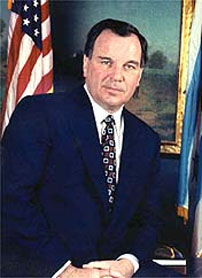
|
However events conspired to transition the blue collar "City of Broad Shoulders" to the modern day white collar mecca "Chi-Town". Firstly, the earthquake of 1964 [2] held back the development of its rival city of Los Angeles. And secondly, his father invested all of his political capital in launching a long-term policy of suburban annexation [3] being forever associated with never-ending highway construction on I-94 through the Windy City and its suburbs [4]. An alternate historyNeverthless, by the late nineteen eighties Los Angeles was fast re-emerging, and Chicagoans began to look nervously at the relative decline of St. Louis. Of course Detroit had only been saved from haunting ruin by the action of local advocates who had lobbied the United Nations into basing their head-quarters on Belle-Isle. The issue was still unresolved when Daley left office and was succeeded by Barry Soetoro. He would govern a mega-city sprawling out into much of Cook County. And the appointment of an ex-Community Organizer was an intriguing development for a city where the term "Chicago Politician" was still being used to cynically describe connections to the Mob, a throwback to the bad old days of Al Capone [5].
In authoring this article we have re-purposed content from both the Wikipedia and also Alternate History web sites. [1] in reality, they lost to the American League Detroit Tigers. [2] & [3] neither of these happened. [4] Insight from Michelle Ross and [5] Jackie Rose.
Birth of Henry IX (The Great)
1594
Henry IXth, King of England born Henry Frederick Stuart (eldest son of James I & VI) in Stirling Castle, Scotland.
Widely seen as a bright and promising heir to his father's thrones (the central event in Shakespeare's "A Midsummer Night's Dream" was based on his royal baptismal party) he very nearly succumbed to typhoid fever at the age of eighteen.
| 
|
But he survived, and as Henry IX (The Great) ascended to the throne thirteen years later, at the age of thirty-one. An obdurate Protestant with strong Calvinist leanings (when his father suggested a French marriage, he answered that he was "resolved that two religions should not lie in his bed"), he was the architect of an Anglican Ireland during his glorious thirty-five year reign.
An alternate history
In contrast to the other English Kings who saw Ireland as a drain on resources (tending to withdraw soon after rebellions were mercilessly crushed), he devoted considerable effort to suppressing Catholicism in Ireland. However an unintended outcome of this conversion was that the Baptist and Presbyterian denominations became seen as the "anti-English" religion, the full consequences of which would only be exposed much later with the emergence of Irish nationalism.
|







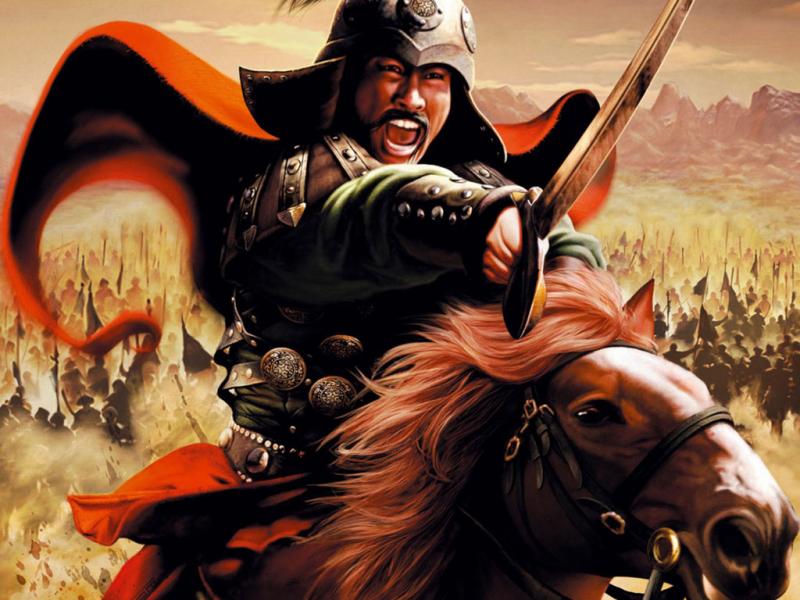

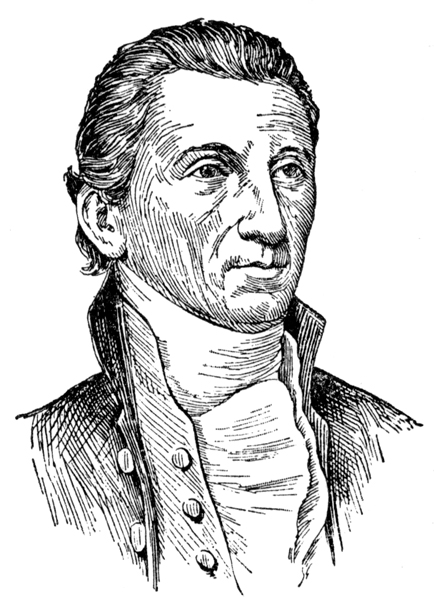
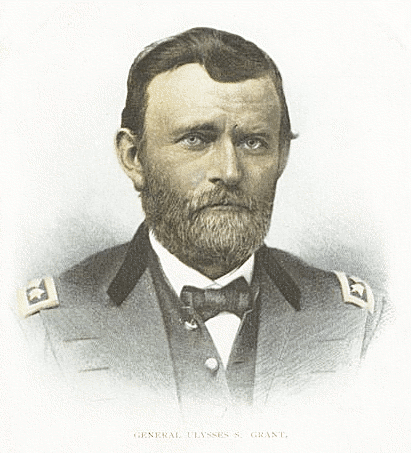



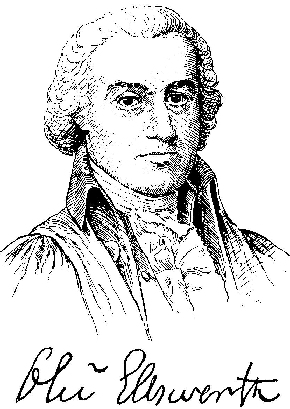








.jpg?w=204&h=153&aspect=nostretch)

.jpg)









